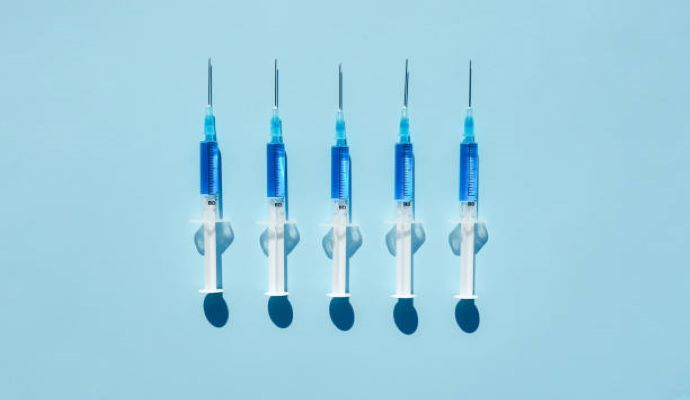Understanding the Correlation Between COVID-19 and Flu Vaccination
In a research letter published in JAMA, investigators found that influenza vaccination in the 2021–2022 season correlated with a 50% greater likelihood of complete COVID-19 vaccination.

Source: Getty Images
- While less than ideal, the progression of the COVID-19 pandemic has presented public health officials with data to analyze on vaccine uptake. In a recent research letter published in JAMA Network Open, Andrew M. Parker, PhD, and his colleagues presented and discussed data on the correlation between COVID-19 and flu vaccination. Understanding the relationship can help public health officials predict future vaccination rates and develop campaigns to encourage vaccination.
Parker and his team state in the publication that “understanding the willingness to receive new vaccines is critical for vaccine rollout and addressing vaccine hesitancy. Future COVID-19 and influenza vaccination may coincide, creating a need to understand the dynamics between ongoing vaccine adherence for familiar diseases and novel vaccine acceptance.”
According to the letter, there were over 1360 respondents, approximately 56% female. In addition to gender demographics, researchers also collected information on ethnic and racial backgrounds. The majority, 86%, of respondents were non-Hispanic White people. Approximately 2% of respondents were Asian, 7% were Black, and 11% were Hispanic.
The results determined that those who had received the influenza vaccine in the 2021–2022 season were 50% more likely to be fully vaccinated against COVID-19 when compared to those who had not. Concerning the inverse relationship, those who had gotten fully vaccinated against COVID-19 were more than twice as likely to get vaccinated against influenza in the 2021–2022 season.
Researchers in the publication concluded that “COVID-19 vaccination was highest among those who historically always received the influenza vaccine, reinforcing studies showing a shorter-term correlation between influenza and COVID-19 vaccination. Most strikingly, among individuals who historically never got the influenza vaccine, those receiving the COVID-19 vaccine were substantially more likely to switch toward getting the influenza vaccine. This suggests that investing in vaccine acceptance has payoffs beyond the vaccine itself.”
Despite the conclusions made by this survey, there are some limitations to the research. One apparent limitation is the lack of diversity in respondents. Across specific populations, these statistics may not persist. Beyond that, the data provide little insight into the reason behind the correlation. Before any definitive conclusions can be made, additional research on the correlation between vaccinations may be necessary.
